How To Treat Hard Water In Garden

We may collect a share of sales from items linked to on this page. Learn more.
This is quite a common question we're asked from keen gardeners, so we thought we'd answer it once and for all.
Most people in the US, UK and Canada will be aware that they have a mixture of soft and hard water areas.
If you're unsure of the water quality in your area, simply look at the below maps for a quick overview, and then scroll below to read the discussion.
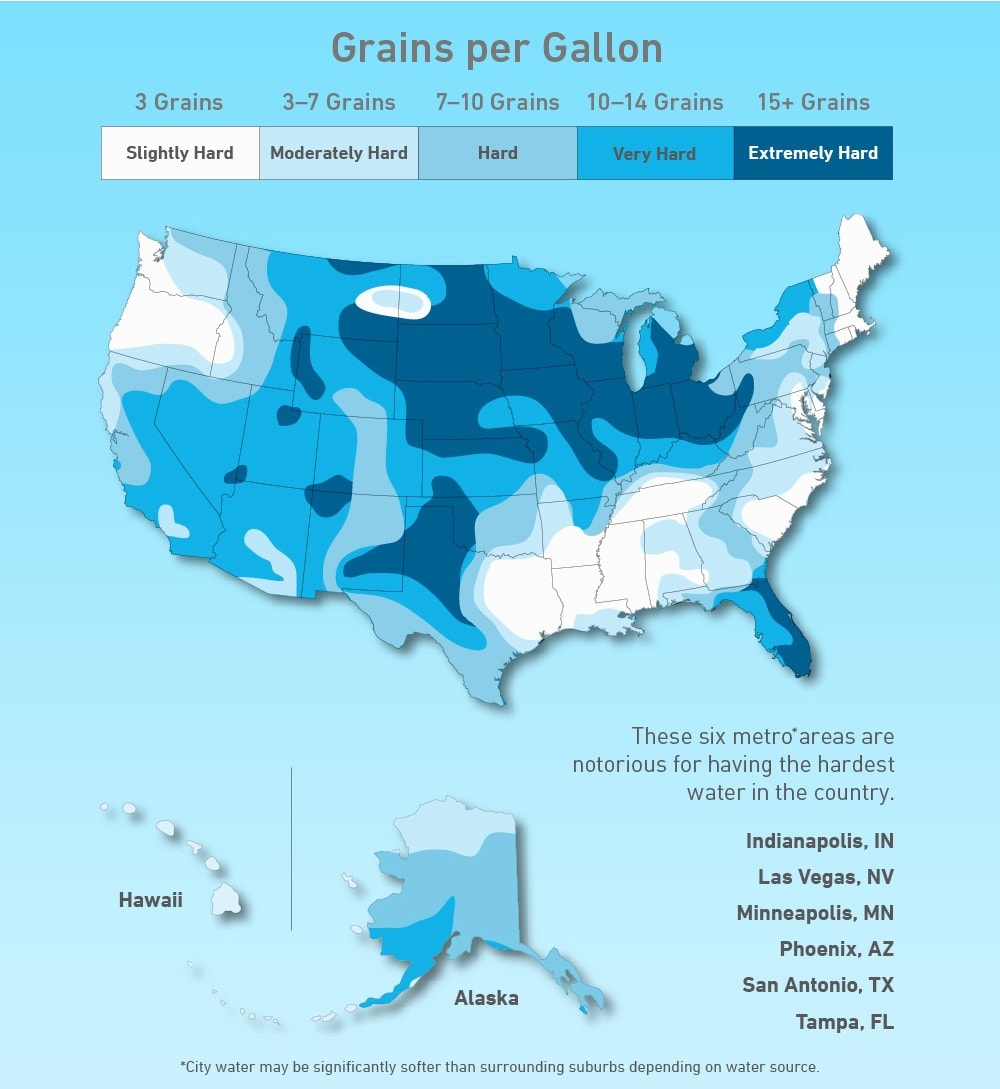
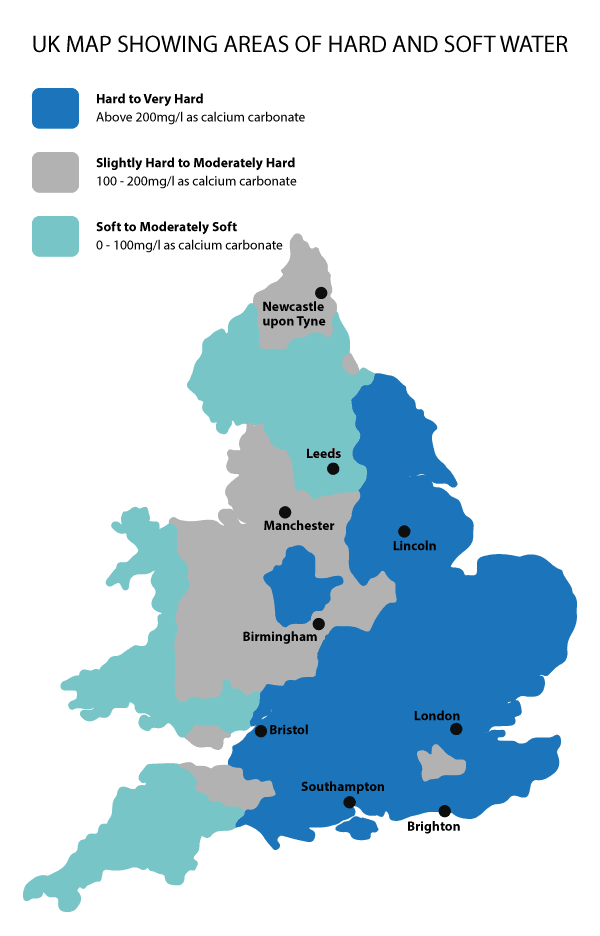
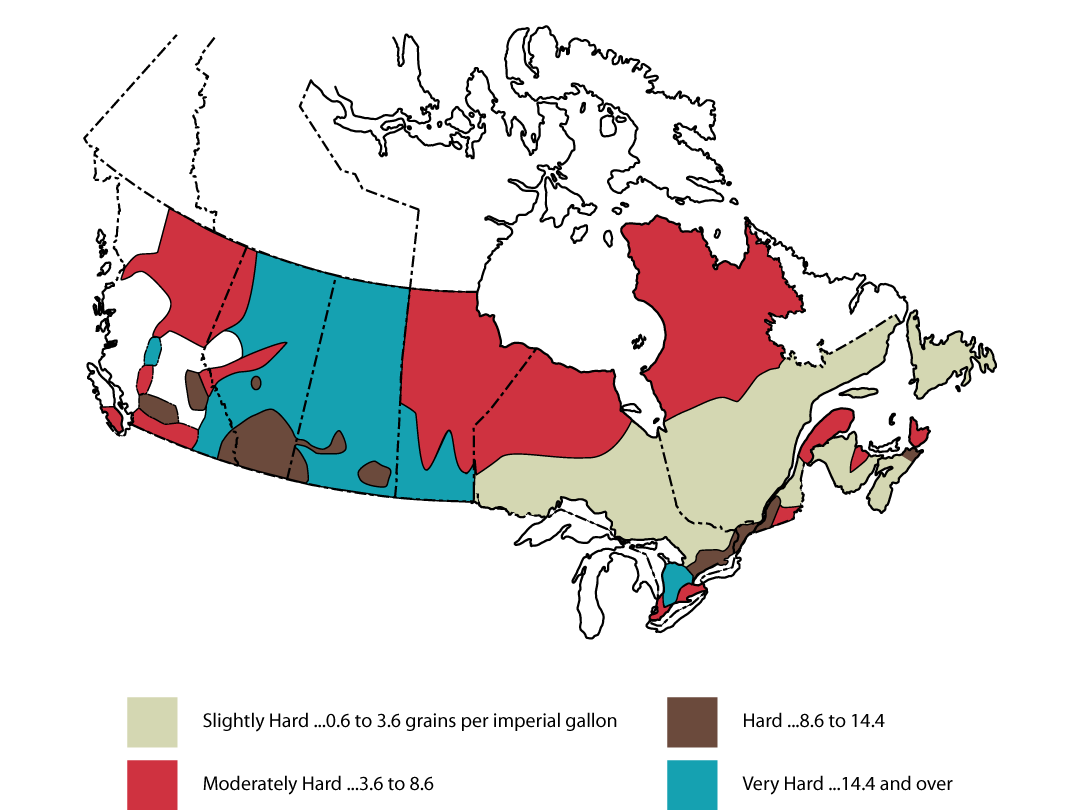
For those of you who are in hard water areas, there's a good chance you may be softening your water already.
Hard water can have a negative impact on hot water household appliances such as dish washers, washing machines and showers – not to mention the taste!
Softening water will not only make it taste better, but it will also be likely to increase the lifespan of your appliances.
Obviously if you live in a soft water area, you won't need to soften your water. But if you plan on relocating to a hard water area in the future, this may still be a helpful read…
It's worth mentioning that hard water is often softened by treating it with sodium or potassium as this replaces the calcium and magnesium minerals which cause the hardness.
I know all this technical and plumbing information isn't that interesting (sorry!), but it makes sense to explain it now as it will be referenced later on in the article.
Softened Water Is BAD News
Whilst softening hard water will likely benefit you and your household, the same can't be said for your garden.
In fact, watering your garden, plants and soil with softened water is actually detrimental to their health.
Don't get me wrong, simply pouring softened water on them once isn't going to kill them or cause immediate damage; but if you consistently use softened water to feed your garden, then the damage will occur over a period of time.
Now, why is softened water bad for your garden?
Remember earlier when we said that sodium was often used as a way to treat hard water?
Well, this is the main cause of the problems.
Routinely watering your plants with softened water can be bad, because large amounts of sodium are often present in softened water.
Given that sodium is a main component of salt, and high levels of salt are extremely detrimental to your plants and your soil, softened water can also be bad when used over the long-term.
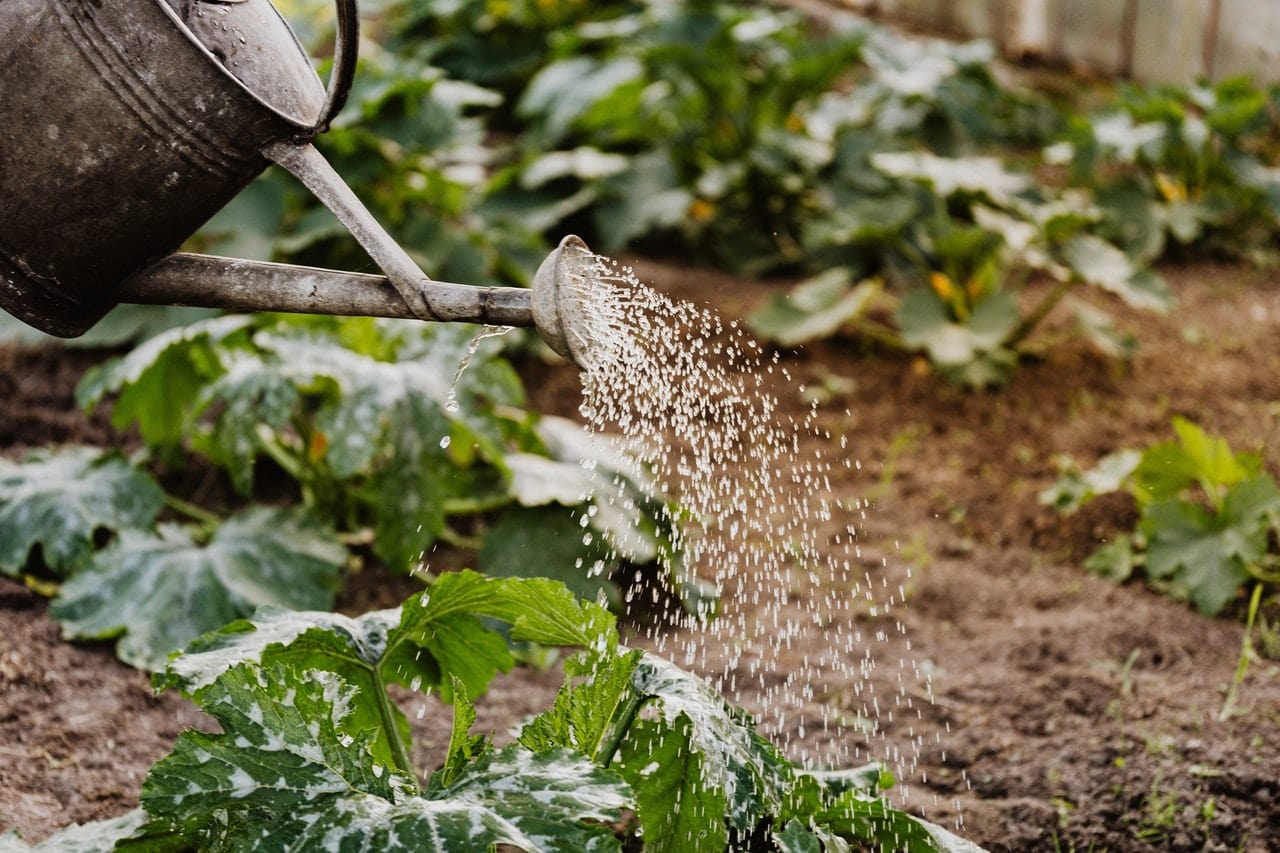
Plants will actually have their water balance interfered with when large amounts of sodium are in the water.
Essentially, this excess amount of sodium tricks plants into thinking they've absorbed more water than they actually have.
Needless to say, your plants therefore won't be getting the amount of water they require and eventually, they will die from dehydration.
Your soil is also at risk when using softened water as the amount of salt will build up over time and gradually cause degradation in the soil quality.
As well as this, the excess salt will also create a hostile planting environment for future plants since the soil will prevent regular water absorption.
Avoiding Softened Water
If you do have a water softener installed for your household, don't worry; there are ways to avoid this and still give your garden the nourishment it needs.
However, your options are quite limited. So if you want to water to continue watering your garden without causing further damage, you should consider the following options:
1) Get a bypass valve installed
Obviously, all of your water is fed into the softener before it comes into your house and appliances.
By installing a bypass valve, you essentially get 'untreated' water straight from the main water line.
If you link this bypass valve up to an outside tap or other outlet, you can simply water your garden with a hose or fill up a watering can from this source and bypass the softening treatment.
This way, you can water your garden as normal and without any ill side effects; just don't drink from the outdoor tap as it won't taste as nice.
2) Mix your softened water
If you have copious amounts of distilled water, or even better, rainwater collected in a water butt, you can simply mix the two together in order to dilute your softened water.
This dilution reduces the salt content in the volume of water, which makes it much friendlier on your plants and soil.
However, over time the salt level in your soil will still build up, so it's wise to test this every now and then to ensure your soil is still fertile and healthy.
Just a heads up, as I'm a bit of a car guy, I should state that washing your car with softened water is much nicer than hard water as you don't get left with ugly water marks if you don't dry it properly.
How To Treat Damage Caused By Softened Water
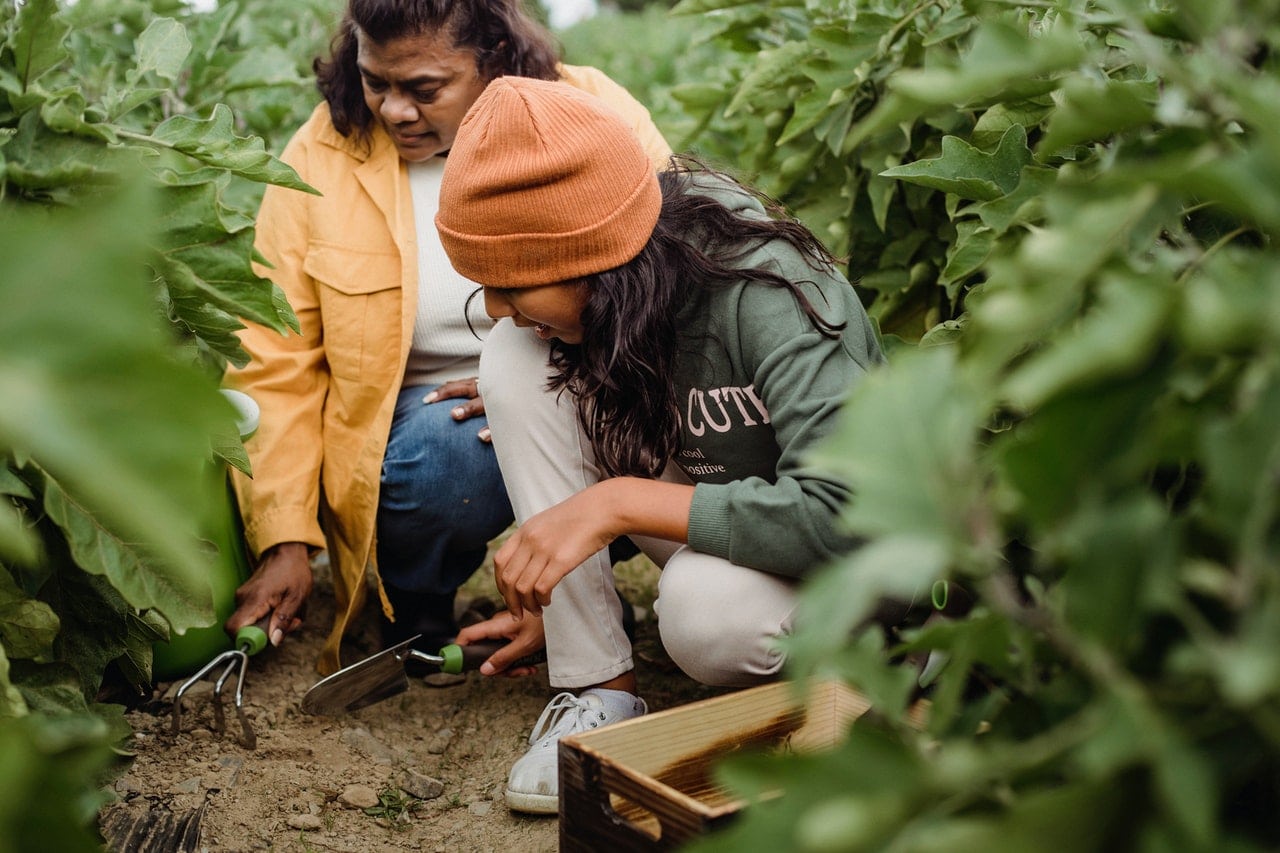
There's a good chance that some of you already have plants and soil that are displaying the signs of being watered with softened water.
Not to worry – we've got the answers that will get your garden back on track to being beautiful and healthy!
If your plants are showing signs of dehydration as a result of the excess sodium, you can simply stop using softened water to water them and begin using regular water, or even better, rainwater!
Doing this will allow your plants to start absorbing the correct amount of water they need. However it may take time, so be prepared to wait a little while for plant recuperation.
There's also a good chance that your soil will have encountered some damage if you've been watering with softened water for too long.
The build up in salt leaves you with a soil imbalance that needs to be corrected.
Sadly, there's no quick way to do this since chemicals are unable to reduce the salt content in your soil.
Leaching
However, it is possible to reverse the effects by leaching. This process involves frequent manual watering (with rainwater or regular untreated water) in order to 'flush out' the salt in the soil.
Since you'll be watering often, you must ensure there is adequate drainage to rid the soil of excess water or you plants and soil will become waterlogged.
If these treatments are carried out, there's no reason why you should be faced with any plant deaths or further complications as a result of softened water.
Just be patient and give your garden time to adapt to the new water quality whilst it rids itself of the effects of the softened water.
Over time your garden, soil and plants will return to their previous state of health – just be sure to keep a close eye on everything and monitor soil levels until everything is back to normal.
Remember, if you have the option of watering your garden with a natural source such as rainwater, do so as the benefits are considerable when compared to regular tap water!
Editor's Note: This post has been updated for freshness and consistency.
Save money by converting your home to solar power. Calculate your savings.
How To Treat Hard Water In Garden
Source: https://greenerideal.com/news/1010-is-watering-plants-with-softened-water-good-or-bad/
Posted by: ahrenssaisent.blogspot.com

0 Response to "How To Treat Hard Water In Garden"
Post a Comment